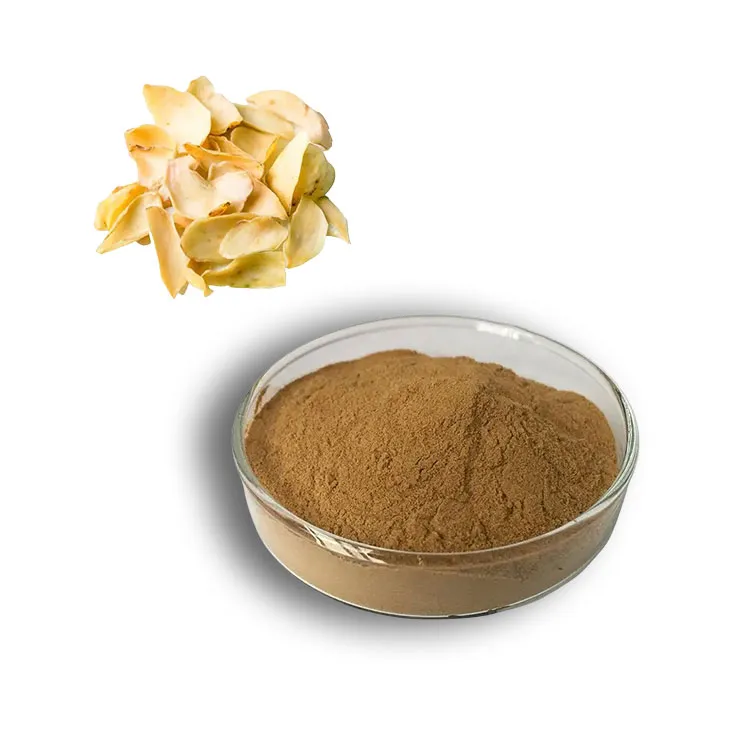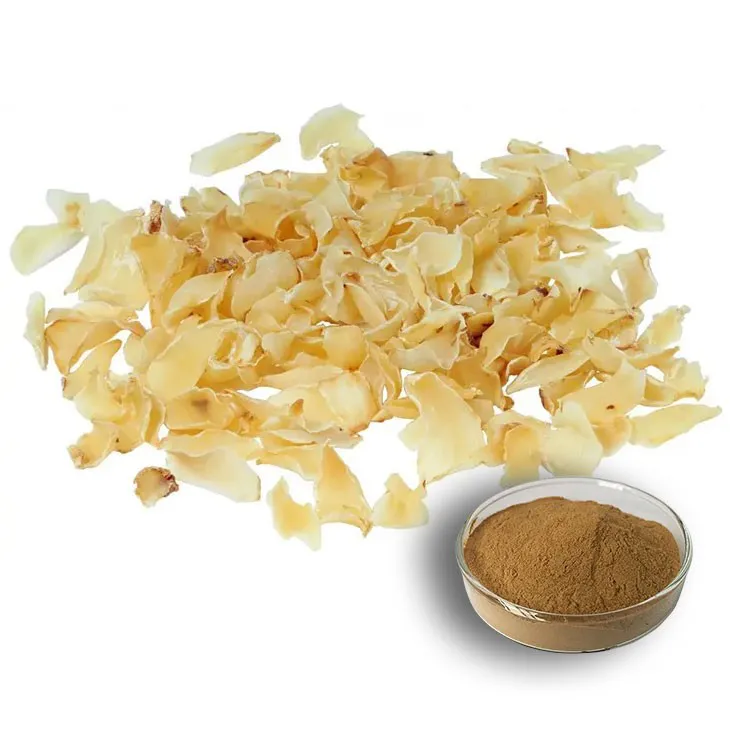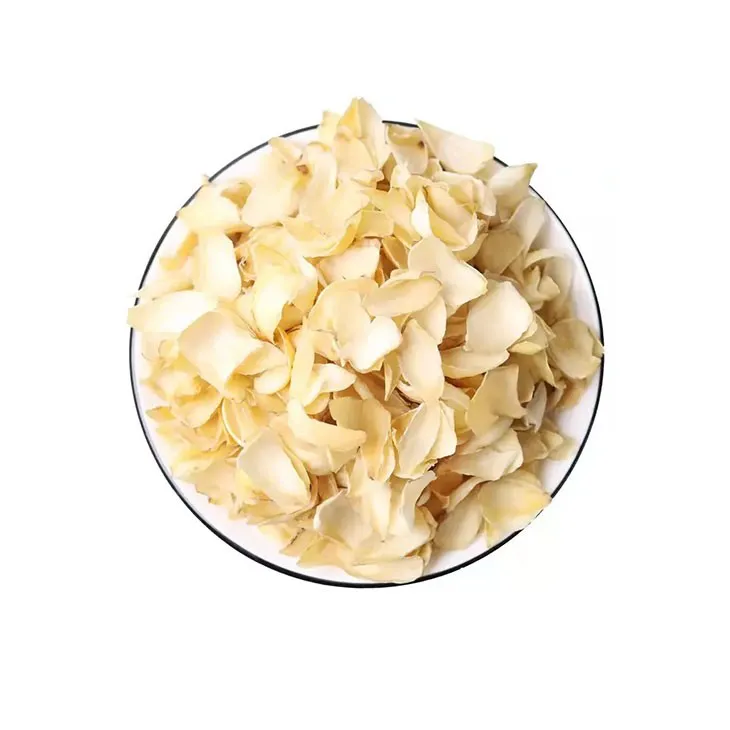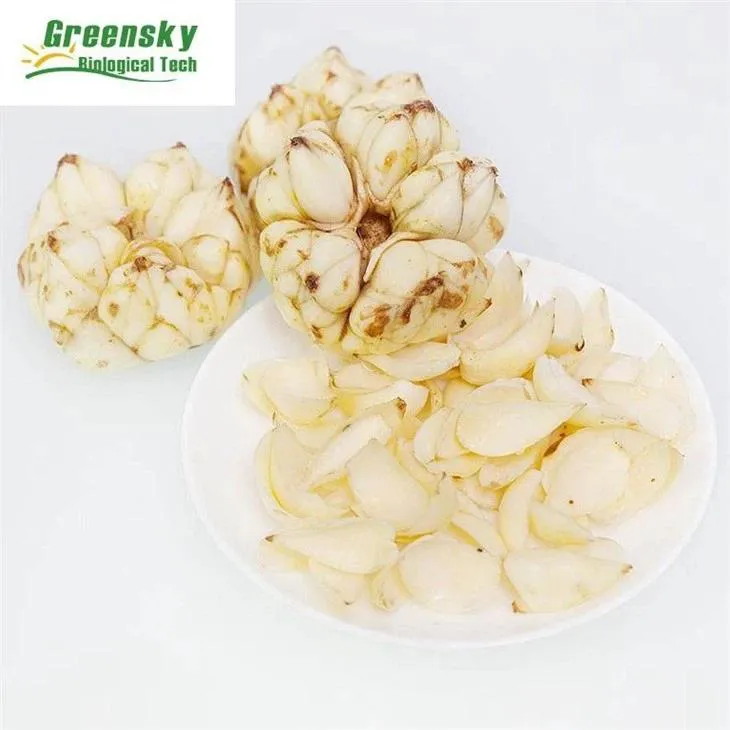- 0086-571-85302990
- sales@greenskybio.com
Lily extract can reduce high blood pressure.
2024-11-13

1. Introduction
High blood pressure, also known as hypertension, is a major public health concern around the world. It is a chronic condition that significantly increases the risk of various cardiovascular diseases, such as heart attacks, strokes, and heart failure. Management of high blood pressure is crucial for reducing these risks. While there are numerous pharmaceutical drugs available for treating hypertension, there is also growing interest in natural remedies. Lily extract has emerged as a potential candidate in this regard. Recent scientific research has suggested that Lily extract may have the ability to lower high blood pressure, offering a natural alternative or complementary approach to traditional hypertension management.

2. Lily extract: Composition and Sources
Lilies are a diverse group of plants, and their extracts are rich in various bioactive compounds. These compounds contribute to the potential health benefits associated with lily extract.
2.1. Alkaloids
One of the significant components in lily extract is alkaloids. Alkaloids are nitrogen - containing organic compounds that have been shown to possess various pharmacological activities. In the context of blood pressure regulation, certain alkaloids may interact with receptors in the body that are involved in cardiovascular function. For example, some alkaloids might affect the autonomic nervous system, which plays a crucial role in controlling heart rate and blood vessel tone.
2.2. Flavonoids
Flavonoids are another group of important bioactive compounds present in lily extract. They are well - known for their antioxidant properties. However, they also have implications for blood pressure regulation. Flavonoids can promote the production of nitric oxide (NO) in the endothelial cells lining the blood vessels. Nitric oxide is a key molecule that causes vasodilation, i.e., the relaxation of blood vessels. By increasing the availability of nitric oxide, flavonoids in lily extract may contribute to reducing peripheral resistance and thus lowering blood pressure.
2.3. Saponins
Saponins are glycosides that are found in lily extract. They have been associated with various health - promoting effects. In terms of blood pressure, saponins may interfere with the reabsorption of sodium in the kidneys. Since sodium retention can lead to increased blood volume and subsequent elevation of blood pressure, the ability of saponins to modulate sodium handling in the kidneys could potentially contribute to blood pressure reduction.

3. Scientific Evidence of Blood - Pressure - Lowering Effect
Several studies have been conducted to investigate the effect of lily extract on blood pressure, providing evidence for its potential role in hypertension management.
3.1. Animal Studies
In animal models of hypertension, lily extract has shown promising results. For instance, in a study using rats with induced high blood pressure, administration of lily extract over a certain period led to a significant decrease in systolic and diastolic blood pressure. The researchers observed changes in the rats' cardiovascular parameters, such as improved endothelial function and reduced vascular stiffness. These findings suggest that lily extract can exert beneficial effects on the cardiovascular system at the physiological level in animals with hypertension.
3.2. In - Vitro Studies
In - vitro experiments using isolated blood vessels or cells have also provided insights into the mechanism of action of lily extract on blood pressure. Studies on isolated aortic rings from animals have demonstrated that lily extract can cause relaxation of the blood vessels. This relaxation is likely due to the activation of certain signaling pathways involved in vasodilation. Additionally, in - vitro studies on endothelial cells have shown that components of lily extract can stimulate the production of nitric oxide, as mentioned earlier, which is a key mediator of blood vessel relaxation.
3.3. Human Studies
Although human studies on the blood - pressure - lowering effect of lily extract are relatively limited compared to animal and in - vitro studies, there are some initial findings that are encouraging. In a small - scale clinical trial, participants with mild to moderate hypertension were given lily extract supplements for a few weeks. The results showed a trend towards a reduction in blood pressure levels, although the changes were not as dramatic as those seen in some animal studies. However, these findings suggest that further research in humans is warranted to fully understand the potential of lily extract in treating high blood pressure.

4. Mechanisms of Action
The blood - pressure - lowering effect of lily extract can be attributed to multiple mechanisms that act on different aspects of the cardiovascular system.
4.1. Vasodilation
As mentioned earlier, vasodilation plays a central role in reducing blood pressure. The bioactive compounds in lily extract, such as flavonoids and alkaloids, can promote vasodilation through various mechanisms. Flavonoids increase nitric oxide production in endothelial cells, which diffuses to the smooth muscle cells in the blood vessel walls and causes them to relax. Alkaloids, on the other hand, may interact with receptors on the smooth muscle cells, leading to a decrease in intracellular calcium levels. A reduction in calcium levels in the smooth muscle cells also results in relaxation of the blood vessels, thereby decreasing peripheral resistance and blood pressure.
4.2. Renal Effects
The kidneys play a crucial role in blood pressure regulation. Saponins in lily extract may affect the renal handling of sodium. By reducing sodium reabsorption in the kidneys, lily extract can lead to a decrease in blood volume. A lower blood volume means less pressure on the blood vessel walls, contributing to a reduction in blood pressure. Additionally, lily extract may also influence the renin - angiotensin - aldosterone system (RAAS), which is a key hormonal system involved in blood pressure regulation. Modulation of the RAAS by lily extract could further contribute to its blood - pressure - lowering effect.
4.3. Antioxidant and Anti - Inflammatory Effects
Flavonoids in lily extract possess antioxidant properties. Oxidative stress and inflammation are associated with hypertension. By scavenging free radicals and reducing oxidative stress, lily extract can protect the endothelial cells lining the blood vessels. Damaged endothelial cells can lead to impaired vasodilation and increased blood pressure. Moreover, the anti - inflammatory effect of lily extract can also help in maintaining the normal function of the cardiovascular system. Inflammation can cause endothelial dysfunction and promote the development of atherosclerosis, which is a risk factor for high blood pressure. By reducing inflammation, lily extract may contribute to better blood pressure control.

5. Potential Implications for Hypertension Management
The potential of lily extract in lowering high blood pressure has several implications for hypertension management.
5.1. Complementary Therapy
Lily extract could be used as a complementary therapy in addition to conventional antihypertensive drugs. For some patients, especially those with mild hypertension or those who experience side effects from pharmaceutical drugs, lily extract may provide an additional means of blood pressure control. Combining lily extract with standard medications may potentially enhance the overall effectiveness of hypertension treatment while reducing the dosage requirements of drugs, thereby minimizing the side effects associated with high - dose drug therapy.
5.2. Lifestyle and Dietary Considerations
Incorporating lily - containing foods or lily extract supplements into the diet could be a part of a healthy lifestyle approach for managing high blood pressure. Diet plays a significant role in blood pressure regulation, and the addition of lily extract - rich sources could offer a natural and potentially beneficial addition. For example, lilies can be used in cooking in some cultures, and the consumption of lily - based dishes or supplements could be promoted as part of a heart - healthy diet.
5.3. Future Research Directions
Despite the promising findings so far, more research is needed to fully understand the potential of lily extract in hypertension management. Future studies should focus on larger - scale human trials to confirm the blood - pressure - lowering effect and to determine the optimal dosage and duration of treatment. Additionally, research should also explore the long - term safety of lily extract use, as well as its potential interactions with other medications. Understanding these aspects will be crucial for the development of lily extract as a viable option for hypertension management.
6. Conclusion
In conclusion, lily extract shows potential as a natural remedy for reducing high blood pressure. Its composition of bioactive compounds, including alkaloids, flavonoids, and saponins, may act through multiple mechanisms such as vasodilation, renal effects, and antioxidant and anti - inflammatory actions to lower blood pressure. While there is evidence from animal and in - vitro studies, and some initial indications from human studies, more research is required to firmly establish its role in hypertension management. However, the potential implications for using lily extract as a complementary therapy, as part of a healthy lifestyle, or as a future treatment option are significant. Continued research in this area may lead to new and effective ways of managing high blood pressure, offering an alternative or adjunct to current pharmaceutical treatments.
FAQ:
1. What are the specific bioactive compounds in lily extract that can reduce high blood pressure?
There are several bioactive compounds in lily extract that may contribute to reducing high blood pressure. For example, some flavonoids and alkaloids present in lily extract have been suggested to play a role. Flavonoids are known for their antioxidant and vasodilatory properties. They can relax blood vessels, which in turn helps in reducing blood pressure. Alkaloids may also interact with the body's physiological systems involved in blood pressure regulation, though the exact mechanisms are still being studied.
2. How does lily extract relax blood vessels?
Lily extract may relax blood vessels through multiple mechanisms. The bioactive compounds in it can stimulate the release of nitric oxide (NO) in the endothelial cells lining the blood vessels. NO is a potent vasodilator, which means it causes the smooth muscles in the blood vessel walls to relax. This relaxation leads to an increase in the diameter of the blood vessels, reducing peripheral resistance and ultimately lowering blood pressure.
3. Is lily extract a substitute for traditional hypertension medications?
At present, lily extract cannot be considered a complete substitute for traditional hypertension medications. While it shows potential in reducing blood pressure, more research is needed to establish its long - term efficacy, safety, and appropriate dosage. Traditional hypertension medications have been extensively studied and proven effective in managing high blood pressure. However, lily extract could potentially be used as an adjunct therapy in combination with medications under the supervision of a healthcare provider.
4. Are there any side effects associated with using lily extract for high blood pressure?
Although lily extract is generally considered safe, some potential side effects may occur. In some cases, individuals may experience allergic reactions, especially if they are allergic to lilies. Also, if consumed in large amounts, it may cause gastrointestinal discomfort such as nausea, vomiting, or diarrhea. However, these side effects are not well - documented and more research is required to fully understand the safety profile of lily extract for blood pressure management.
5. How much lily extract should be consumed to effectively reduce high blood pressure?
Currently, there is no standardized recommended dosage for using lily extract to reduce high blood pressure. Dosage may depend on various factors such as the individual's overall health, the concentration of bioactive compounds in the extract, and the severity of hypertension. More research is needed to determine the optimal dosage that can effectively and safely lower blood pressure.
Related literature
- The Potential of Lily - Based Compounds in Cardiovascular Health"
- "Bioactive Substances in Lily Extract and Their Impact on Physiological Functions"
- "Research on the Hypotensive Effect of Lily - Derived Components"
- ▶ Hesperidin
- ▶ citrus bioflavonoids
- ▶ plant extract
- ▶ lycopene
- ▶ Diosmin
- ▶ Grape seed extract
- ▶ Sea buckthorn Juice Powder
- ▶ Beetroot powder
- ▶ Hops Extract
- ▶ Artichoke Extract
- ▶ Reishi mushroom extract
- ▶ Astaxanthin
- ▶ Green Tea Extract
- ▶ Curcumin Extract
- ▶ Horse Chestnut Extract
- ▶ Other Problems
- ▶ Boswellia Serrata Extract
- ▶ Resveratrol Extract
- ▶ Marigold Extract
- ▶ Grape Leaf Extract
- ▶ blog3
-
Cranberry Plants and Skin - care Products.
2024-11-13
-
Withania Somnifera Extract
2024-11-13
-
Horse Chestnut Extract
2024-11-13
-
Milk Thistle Extract
2024-11-13
-
Fenugreek Extract Powder
2024-11-13
-
Saw Palmetto Extract
2024-11-13
-
Mulberry Extract
2024-11-13
-
Coconut Water Powder
2024-11-13
-
Thunder God Vine Extract
2024-11-13
-
Angelica sinensis extract
2024-11-13
-
Quercetin
2024-11-13





















